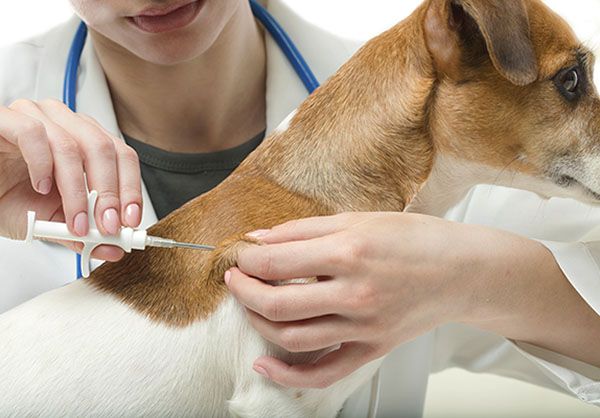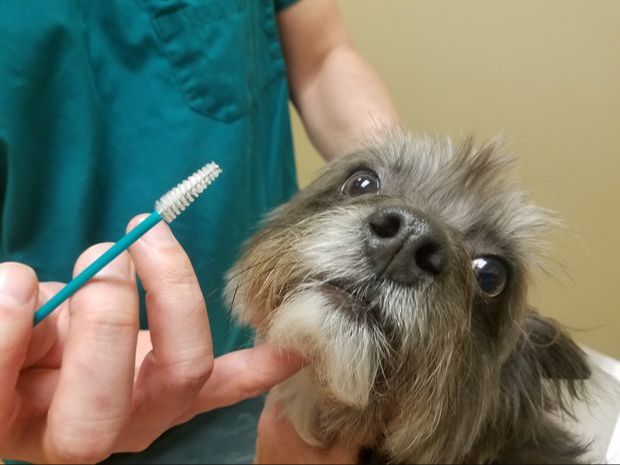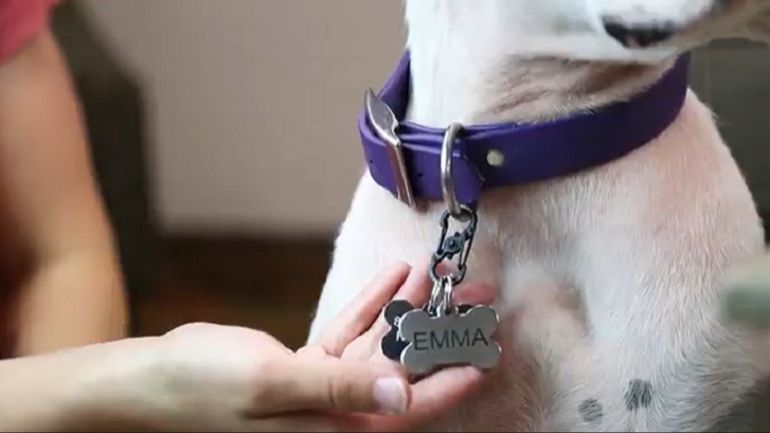Introduction
Having proper registration papers for your dog is important for several reasons. Papers help verify your dog’s breed, parentage, and pedigree. This provides crucial information about your dog’s genetic background and health history. Lack of papers makes it difficult to confirm purebred status or enroll in breed registries like the AKC. Unpapered dogs may face limitations for participation in dog shows, competitions, or breeding programs. There are also risks associated with adopting dogs without papers. Their medical and behavioral history may be unknown. Unethical breeders sometimes sell dogs without papers to hide poor breeding practices. Overall, papers help promote responsible breeding, protect purebred bloodlines, and give dog owners valuable insight into their pet’s heritage.
Determine If Your Dog Needs Papers
Not all dogs require official registration papers. These are primarily for purebred dogs that will be used for breeding purposes or competing in certain dog shows and events. For mixed breed dogs or pets, papers are usually not needed.
The most important records for any dog are veterinary records showing their medical history and care. Microchipping is another essential way to provide permanent identification. This allows dogs to be traced back to their owners if they become lost.1
Consider registering your dog if:
- Your dog is a purebred and you want to breed or show them
- You want to verify their lineage and purebred status
- You plan to travel internationally with your dog
For typical pet dogs, veterinary records and microchipping provide sufficient identification and medical history. Formal papers through a kennel club are optional for these dogs.
Get Veterinary Records
One of the first steps to getting papers for your dog is to obtain their veterinary records. Your dog’s medical history provides crucial information and proof of vaccines, medical conditions, treatments, and more. According to Licking Valley Veterinary, “Having your pet’s medical records is very important. Just like with humans these records give your medical provider important information.”
If you adopted your dog from a shelter or rescue, contact them to request a copy of any veterinary records they have. For previous vets your dog has seen, call their offices and ask them to send your dog’s medical files. Most clinics keep records for at least 7 years and are required to provide copies. Be prepared to verify your identity and pay any fees required for copying and sending records. Having as complete a medical history as possible will help tremendously when registering your dog.
Microchip Your Dog
Getting your dog microchipped is one of the most important steps to take if your dog does not have formal papers. A microchip is a small, implantable device that contains a unique ID number that can be scanned to identify your pet. Microchipping provides permanent identification for your dog and greatly increases the chances of being reunited if they become lost or stolen.

The microchipping process is quick and simple. A veterinarian or shelter staff will implant the chip under your dog’s skin between their shoulder blades using a needle. The microchip itself is about the size of a grain of rice. Your pet will feel only a brief pinch during insertion. Once implanted, the microchip lasts for the lifetime of your pet.
After implantation, you must register your contact information into a microchip registry database. This connects your pet’s microchip ID with your name and contact details. If your dog ends up at a vet, shelter or pound, they can scan the microchip to access the registry and contact you. According to the AVMA, microchipped pets are over 20 times more likely to be returned to their owners if lost.
Other key benefits of microchipping include:
- Permanent ID – The microchip never wears off or needs replacement
- Tamper proof – The ID cannot be removed or altered
- Painless – The microchip implant procedure is quick and causes only brief discomfort
- Proof of ownership – Microchips serve as ID if disputes over pet ownership occur
- Peace of mind – You have the comfort of knowing your pet can be identified if lost
Overall, microchipping plays a critical role in providing identification for dogs without papers. Just be sure to register your details and keep them updated in the microchip registry database.
DNA Testing
DNA tests can be used to identify the breeds in mixed breed dogs with relative accuracy. Companies like Wisdom Panel and Embark offer genetic testing kits that analyze your dog’s DNA to pinpoint their ancestry and provide a breed breakdown. These tests analyze thousands of genetic markers from purebred dogs to compare against your dog’s DNA and predict their breed makeup.
According to a study by the University of Colorado, DNA tests from Wisdom Panel and Embark were over 90% accurate in identifying breed composition for dogs with one or two breeds. However, accuracy decreased for dogs with three or more breeds in their ancestry.
When testing mixed breed dogs, DNA tests may not always detect small amounts of some breeds. But they can identify the dominant breeds that make up a majority of your dog’s genetic composition. This can provide helpful insight into your dog’s traits, behaviors, health risks, and more. DNA tests range from $80-200 and require a simple cheek swab sampling from your dog.
While DNA testing can reliably determine breed makeup for the majority of mixed breed dogs, some experts caution that the tests still have limitations in detecting trace amounts of DNA from rarer breeds. According to an NPR article, DNA tests should be considered as one clue about breed ancestry but not definitive proof.

Register Your Dog
If you have a rescue dog or mixed breed without papers, you may still be able to register them with a major kennel club like the AKC. While purebred dogs must meet certain pedigree requirements for full AKC registration, all dogs are eligible for “Canine Partners” listing. Here are the steps to register a dog without papers with the AKC:
First, fill out the Canine Partners enrollment application on the AKC website. You’ll need to provide your contact information, your dog’s name, sex, breed, microchip number if applicable, and date of birth. There is a $35 enrollment fee.
Next, the AKC will mail you the Canine Partners number within 2 weeks. This will allow you to create an online profile for your dog and participate in various AKC events and programs.
While Canine Partners dogs cannot compete in conformation shows, they are eligible for obedience, agility, tracking, and other performance events. Canine Partners listing also allows you to receive an AKC pedigree and family tree for your mixed breed dog.
Overall, AKC registration lends credibility, gives access to resources like vet insurance, and allows mixed breeds to participate in events. See the AKC website for full details on the Canine Partners program.
Obtain Purebred Registration
If your dog is of a recognizable breed and you can verify its purebred lineage, you may be able to obtain official registration and pedigree papers from the breed’s registration organization or club. This will allow you to prove that your dog is a purebred from registered parents.
For popular pure breeds like Labradors, Golden Retrievers, German Shepherds, etc., you will want to register your dog with the American Kennel Club (AKC). The AKC maintains pedigrees and issues registration certificates that confirm purebred status. To obtain AKC registration, you will need to provide information on the parents and their registration numbers, and submit an application with photos of your dog. There may be additional requirements depending on your specific situation (American Kennel Club – Registration Requirements).
For rarer breeds, you will need to obtain registration directly through the applicable breed club or registry, such as the United Kennel Club. Each club has its own registration rules and procedures. You can search for the club associated with your dog’s breed and then check their website for paperwork requirements.
If both parents were registered purebreds but your dog was never registered as a puppy, you may still be able to obtain registration later in life through additional verification steps. Overall, obtaining legitimate breed club registration establishes proof that your dog comes from registered AKC or other purebred lineage.
Alternatives to Formal Papers
There are alternatives for dog owners who do not have or cannot obtain formal registration papers for their dogs. One option is to earn a Canine Good Citizen (CGC) certificate through the American Kennel Club. The CGC program teaches good manners and responsible dog ownership through a 10-step test. Dogs must demonstrate skills like coming when called, walking through a crowd, greeting strangers politely, and remaining calm during supervised separation. When a dog passes the CGC test, owners receive a certificate they can show landlords, homeowners associations, and others as proof their dog is well-behaved (AKC, 2023).
Earning CGC certification can help owners gain access to rental housing that restricts certain dog breeds. It also shows your dog has basic obedience skills and manners. Some therapy dog groups accept the CGC certificate as partial fulfillment of their requirements. While not a full substitute for formal registration papers, the CGC provides an accessible alternative for owners seeking to demonstrate their dog’s training.
Why Papers Matter
There are several important benefits to having papers for your dog:

Registration and licensing helps get lost dogs back home. Dog licenses usually include your contact information, so you can be identified and contacted if your dog gets lost or ends up at an animal shelter. According to Cesar’s Way, a license tag helps animal control and shelters quickly identify your dog and get him back to you safely.
Licensing proves your dog is properly vaccinated. Most municipalities require up-to-date rabies vaccinations to issue a dog license. This reassures others that your dog poses minimal disease risk.
Papers provide proof of ownership. Purebred registration documents, purchase contracts, vet records, and licensing can demonstrate your legal ownership in case of disputes over who owns the dog.
It’s required by law. Licensing laws exist in most jurisdictions, with fines for noncompliance. Licensing helps fund animal control and shelter services. So it’s a legal responsibility for responsible pet owners.
Papers facilitate travel. Things like pet passports, vet records with rabies antibody tests, and purebred registrations can help ensure easy travel across states and international borders with your dog.
Conclusion
Getting papers for your dog can seem daunting, but breaking it down into steps makes it more manageable. Here’s a summary of the key steps covered in this guide:
- Determine if your specific dog actually needs formal papers. Some dogs may not need them.
- Get copies of any existing veterinary records that prove your dog’s health history.
- Microchip your dog and register the microchip to get an identifying record.
- Consider doing a DNA test to get insight into your dog’s ancestry.
- Register your dog with your town/city to get a license.
- If your dog is a purebred, register them with the appropriate breed club.

While formal papers provide benefits like being able to compete in dog shows, they aren’t absolutely mandatory for all dogs. Focus on the steps that make sense for your individual dog’s needs.